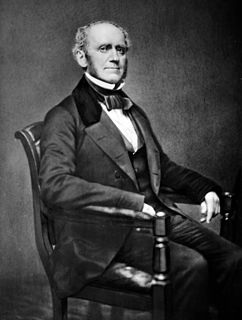A Quote by Herman Melville
A true military officer is in one particular like a true monk. Not with more self-abnegation will the latter keep his vows of monastic obedience than the former his vows of allegiance to martial duty.
Related Quotes
Every man and woman in society has one big duty. That is, to take care of his or her own self. This is a social duty. For, fortunately, the matter stands so that the duty of making the best of one's self individually is not a separate thing from the duty of filling one's place in society, but the two are one, and the latter is accomplished when the former is done
The name, his true name, was weaker and more flawed than he would have liked, and he hated himself for that, but there was also much to admire within it, and the more he thought about it, the more he was able to accept the true nature of his self. He was not the best person in the world, but neither was he the worst.
The inner censor of the mind of the true believer completes the work of the public censor; his self-discipline is as tyrannical as the obedience imposed by the regime; he terrorizes his own conscience into submission;he carries his private Iron Curtain inside his skull, to protect his illusions against the intrusion of reality.
Pascal makes no attempt in this most famous argument to show that his Roman Catholicism is true or probably true. The reasons which he suggests for making the recommended bet on his particular faith are reasons in the sense of motives rather than reasons in the sense of grounds. Conceding, if only for the sake of the present argument, that we can have no knowledge here, Pascal tries to justify as prudent a policy of systematic self-persuasion, rather than to provide grounds for thinking that the beliefs recommended are actually true.
The difference between a man who faces death for the sake of an idea and an imitator who goes in search of martyrdom is that whilst the former expresses his idea most fully in death it is the strange feeling of bitterness which comes from failure that the latter really enjoys; the former rejoices in his victory, the latter in his suffering.
None has more frequent conversations with a disagreeable self than the man of pleasure; his enthusiasms are but few and transient; his appetites, like angry creditors, are continually making fruitless demands for what he is unable to pay; and the greater his former pleasures, the more strong his regret, the more impatient his expectations. A life of pleasure is, therefore, the most unpleasing life.
As long as the reason of man continues fallible, and he is at liberty to exercise it, different opinions will be formed. As long as the connection subsists between his reason and his self-love, his opinions and passions will have a reciprocal influence on each other, and the former will be objects to which the latter attach themselves.







































